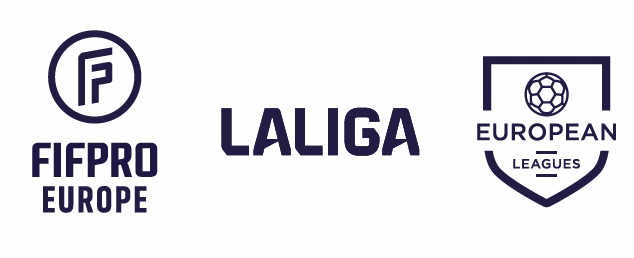October 14 – FIFPRO Europe and the European Leagues association have followed through on their threat and, filed a complaint tothe European Commission against FIFA over the international match calendar.
They have been joined in the filing by Spain’s LaLiga.
The complaint maintains that FIFA has a conflict of interest over its role as a competition organiser and governing body and that it is breaking European competition law.
Also at the heart of the complaint is that FIFA has forced its international calendar on players and leagues without any meaningful agreement or discussion with them. An assertion that FIFA has denied.
The complaint focuses on decision taken over the international match calendar and in particular the planned 2026 Club World Cup which FIFPRO and the World Leagues Association have already demanded should be abandoned, but also on World Cup 2026.
FIFPRO Europe and European Leagues boards had agreed to the legal action in July.
They point to “widespread concerns raised publicly by players about the impact an unsustainable football calendar has ontheir health, wellbeing and career longevity”.
They also argue that FIFA’s expanded match calendar also threatens the economic and social sustainability and stability of important national competitions, undermining the fabric of football in Europe.
Announcing their action at a news conference earlier today in Brussels, they claimed that by refusing meaningful engagement on the calendar with players and leagues, FIFA has “used its regulatory power to promote its commercial interests at the expense of the social partners (players and leagues)”.
They say that this is an ‘abuse of dominance’ and violates European Union law, citing recent case law in the EU courts,including European Court of Justice rulings in the ‘Super League’ and ‘Diarra’ cases.
They also argue that it is “clear that given its conflict of interest FIFA must exercise its regulatory functions in a way that is transparent, objective, non-discriminatory and proportionate”, and that they were left with no alternative than to pursue FIFA through the European courts “to safeguard the European football sector which is a global cultural andentertainment powerhouse”.
Richard Masters, CEO of the Premier League, said: “I t is getting to a tipping point. The feedback we have from players isthat there is too much football being played and there is constant expansion. The Premier League hasn’t changed shape.What has changed over the last few decades is the march of international and regional football competitions.”
FIFA is adamant that the complaint is hypocrisy, trying to deflect the attention by pointing the finger at UEFA who say they have expanded their own competitions.
Ultimately FIFA is looking to eat a portion of UEFA’s commercial and broadcast lunch and the players are just a tool on the route to a larger, and for FIFA a more important, financial objective. While strong arguments do exist that the number of players impacted is only a fraction of the total number of professional players worldwide, there is nevertheless a calendar affect on all of them, and also a potentially destabilizing economic affect in terms of wages and domestic league funding.
In short, the more money FIFA sucks out of the commercial system for their competitions, the less there is for local leagues. Europe is the pinchpoint but there will be a trickle down effect for all professional leagues as competition for finite commercial support impacts domestic markets.
“FIFA refuses to listen and engage with the players, the main labour resource of our industry, who are there on the pitch,creating a powerhouse of European and global entertainment culture, and pushing their bodies to the limit,” said David Terrier, president, FIFPRO Europe.
“But we have listened to our players. In countless discussions and locker room visits we have received the same messages for along period of time, that they are playing too much and do not have enough time to recover. Ahead of the worst season ever forworkload, many have also decided to talk in public with the same message: enough is enough.”
LaLiga president Javier Tebas has long argued against FIFA’s abuse of its powers, and often against FIFA’s failure to use those powers to protect the foundations of the professional game from outside dangers.
“Player unions and leagues are clearly aligned in protecting national competitions and their players, who are increasinglyexposed to the negative impact of a congested schedule,” said Tebas.
“By introducing new formats and expanding competitions unilaterally, FIFA is acting solely in its own interest,without considering the resulting damage to the entire football ecosystem, including the value of our national leagues, which are the cornerstone of the European sporting model.
“It is essential to protect our sport and ensure that decisions are made with the consideration of all football stakeholders, not unilaterally.”
FIFA has yet to make a full response to the complaint though they knew it was coming but have steadfastly refused to entertain any change of position or abandonment of the 2025 Club World Cup planned for the US next summer. Those preparations have not been without commercial setbacks as FIFA have struggled to secure highest value broadcast and sponsorship, but remain steadfast in their intention to make it happen. The question for that competition is at whose cost?
Contact the writer of this story at moc.l1751732984labto1751732984ofdlr1751732984owedi1751732984sni@n1751732984osloh1751732984cin.l1751732984uap1751732984

